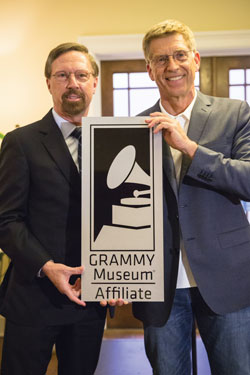Just as the nation is preparing for a presidential election, the University is in the process of finding a new president to take the place of President Gaffney who will be retiring in June 2013.
Following President Gaffney’s announcement of his plan to retire last semester, the University established a search committee to find the best candidate to lead the school toward the future it deserves.
Dr. Grey Dimenna, Vice President and General Counsel, is responsible for the staff work of the Presidential Search Committee, a 16-person search committee. According to Dimenna, several steps have already been taken to prepare for the choosing of a new president. Of these steps, one is a Leadership Statement, which can be viewed on the University website.
“The search committee developed a leadership statement, which is a document that tells potential candidates about the University, what the challenges facing the new president will be, and what the characteristics in a president the University is searching for,” said DimennaThe Leadership Statement, which was first drafted by Dimenna and later incorporated input from the Board of Trustees, the President’s Cabinet and the presidential search committee was formally adopted by the Board of Trustees in June and placed onto their website. The document includes lists of what challenges a new president will face and what characteristics are being sought in potential candidates.
According to the Leadership Statement, the challenges include: the future of the academic program, enrollment strategy, enhancement of financial resources, focus on student satisfaction and success, growth of alumni support, enhancing diversity, evolution of a University marketing strategy, meeting facility needs, strengthening community relationships, future use of Fort Monmouth, continuing development of the athletic program and partnering with an engaged board.
Characteristics that the Presidential Search Committee and the Board of Trustees believe to be most important, according to the Leadership Statement, are: dedication to the University’s academic and financial success; ethical, honest, open and fair with excellent interpersonal skills; outgoing, energetic, and confident; passionate in planning fundraisers; ability to connect with University community; genuine interest in students and their personal growth and development; decisive in contexts of listening, team building, ne gotiating, gaining consensus, and accountability; experience in academic environment; strategic and critical thinker with flexibility and creativity; insight on global issues; experience in leadership; financial acumen; skillful at recruiting and working with high-level talent; and a track record of networking in academic, corporate and governmental circles.
The University has contracted with a search consulting firm, Association of Governing Boards (AGBSearch), which is a nonprofit organization. The consultant is Ted Marchese, who had previously worked with the University in 2002-2003 for the search for President Gaffney. With the help of Marchese, the two co-chairs of the Search Committee, Dr. Marcia Sue Clever and Alfred J. Schiavetti, Jr., and Dimenna will be putting together an ad that will be published in several outlets that offer different higher education positions.
“The Chronicle of Higher Education is a weekly newspaper that deals with issues of higher education and people often advertise for positions in that paper,” said Dimenna of the publications they plan to advertise in. “There are other papers that focus on women, African Americans, and Hispanics and other minorities. We want to be sure we have a diverse pool of candidates.”
In addition to the Leadership Statement and the advertisements that will be published, the search committee has sent out nominating letters to officials such as the governor, federal congressmen, senators, and local officials explaining that the University is in the process of searching for a new president and requesting that they recommend anyone whom they believe to be fit for the position, according to Dimenna.
Applications to apply for the new presidential position are due by the end of October to the beginning of November. The search committee will then narrow down the candidates to 10- 15 people and interview them at an off campus location where the group will then be reduced again to three to four finalists. Those last few people will be required to meet with various groups on campus such as students, faculty, administration, alumni, and the Board. After receiving feedback, the Board of Trustees will make a final decision in February.
“This is a very confidential process,” Dimenna said. “People applying are in high profile positions and often, when they apply, they want to make sure their candidacy is confidential because often times they have not notified their employer. Their names are never released.”
Reviewing of applications begins on November 5 by the search committee. For more information, visit www.monmouth.edu/presidentialsearch.



